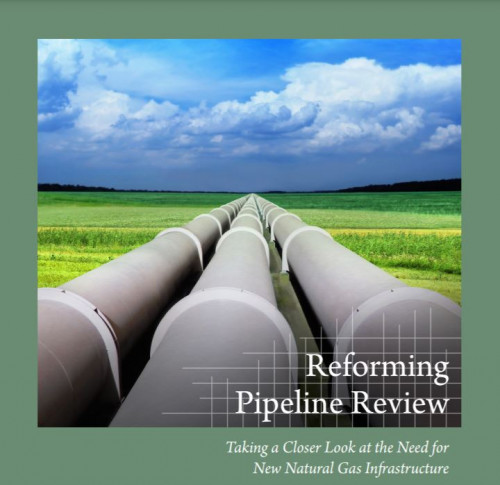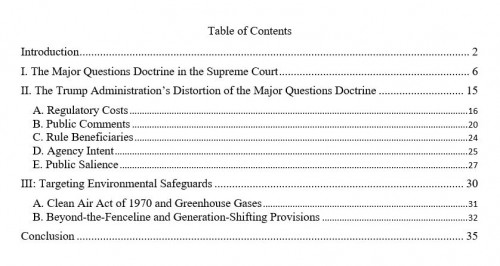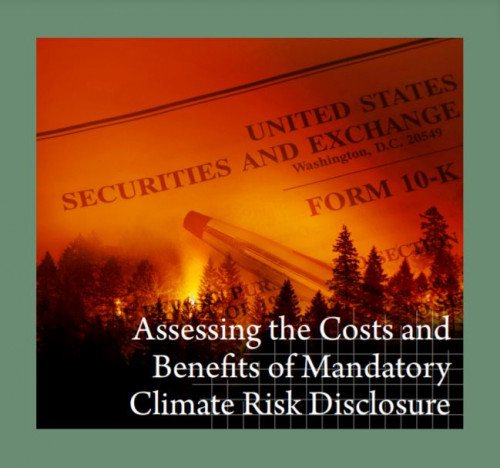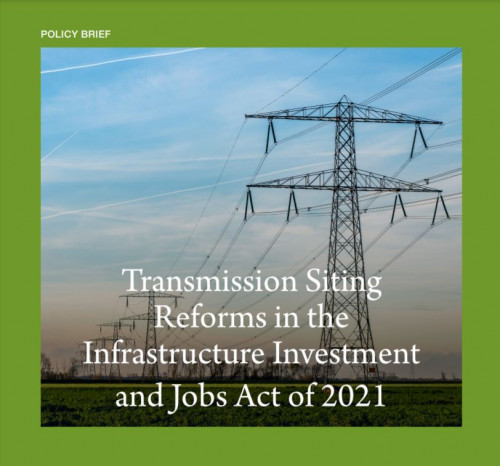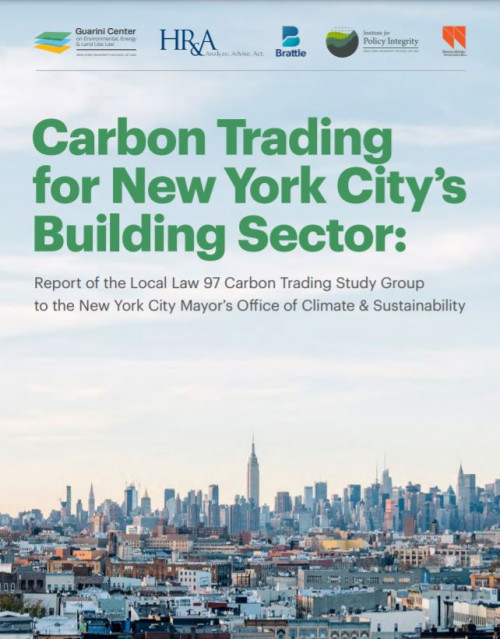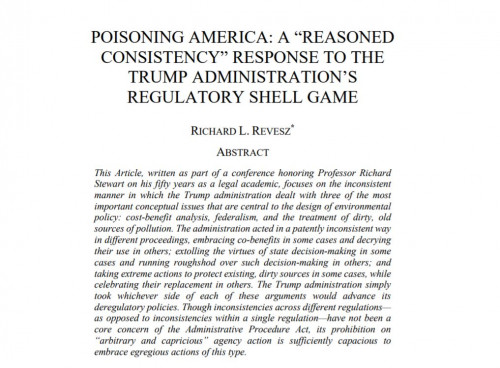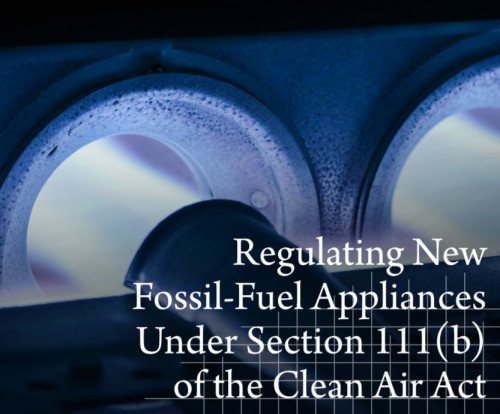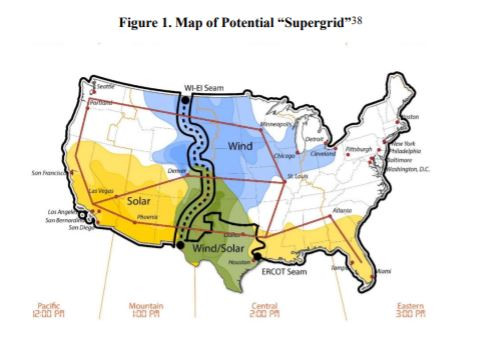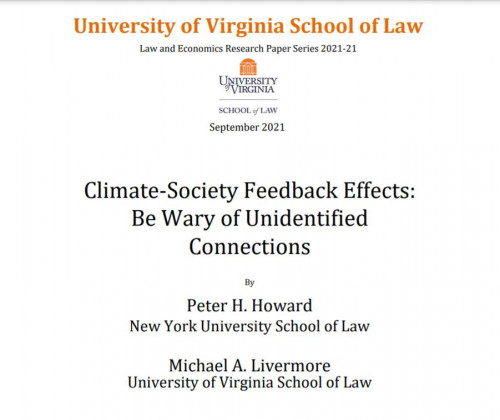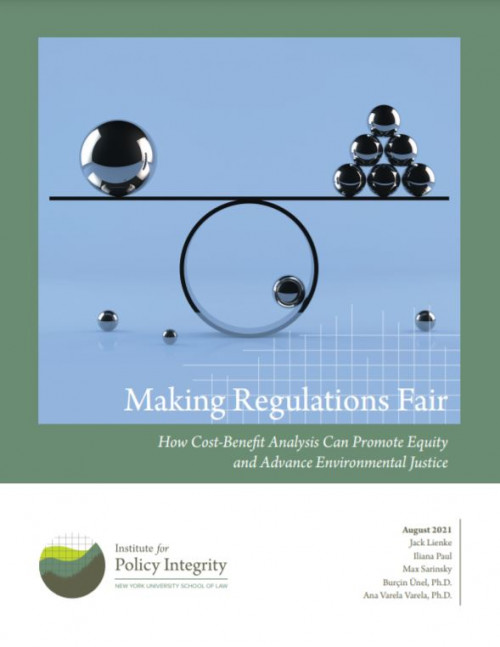-
Reforming Pipeline Review
Taking a Closer Look at the Need for New Natural Gas Infrastructure
The Federal Energy Regulatory Commission (FERC) uses a flawed process to evaluate the need for new, long-lasting gas infrastructure such as interstate pipelines, resulting in a certification process that fails to serve the public interest. As FERC begins to re-examine its approval process for new natural gas infrastructure, our report analyzes the Commission’s authority to consider a broader range of factors when deciding whether a proposed project is in the public interest. The report offers four key recommendations for reform.
-
Mangling the Major Questions Doctrine
Published in Administrative Law Review
The Trump Administration construed the major questions doctrine enormously expansively and inconsistently, in ways untethered to the Court’s jurisprudence, turning it into little more than an invitation for courts to strike down regulations the Administration did not favor for policy-based reasons. Under the similarly wrongheaded and even broader arguments made by the Administration’s allies, all greenhouse gas regulations could be suspect on major question grounds. Bringing to light these argument's enormously problematic application of the doctrine is important to foreclose their successful revival in future administrations.
-
Assessing the Costs and Benefits of Mandatory Climate Risk Disclosure
Climate impacts are already threatening major economic sectors in novel ways and could cost the global economy trillions of dollars annually by 2100. Yet despite their serious implications, climate-related financial risks are under-disclosed by companies and are rarely reported in a way that is useful for investors.
As the Securities and Exchange Commission (SEC) prepares a new climate risk disclosure rule, this report analyzes relevant case law and highlights best practices that the SEC can follow in estimating the rule’s economic impacts. With trade groups expected to challenge any new disclosure requirement by claiming that its costs exceed its benefits, defending the rule’s economic analysis will be crucial in court.
-
Transmission Siting Reforms in the Infrastructure Investment and Jobs Act of 2021
This policy brief highlights Infrastructure Investment and Jobs Act (IIJA) provisions that are relevant to transmission siting, summarizes the changes they effectuate, and describes important implications of those changes for efforts to develop more interstate transmission capacity. It then offers a brief assessment of the IIJA’s overarching significance to such efforts, including by comparing them to a more ambitious legislative alternative.
-
Carbon Trading for New York City’s Building Sector
Report of the Local Law 97 Carbon Trading Study Group to the New York City Mayor’s Office of Climate & Sustainability
NYU researchers assessed whether New York City should adopt a carbon trading program for its buildings pursuant to its landmark climate law, Local Law 97 of 2019. The study offered two proposals for trading programs, both of which would benefit the City as a whole, and environmental justice communities in particular, and found that both proposals would lead to deeper GHG reductions and lower the cost of complying with LL97.
-
Poisoning America
A “Reasoned Consistency” Response to the Trump Administration’s Regulatory Shell Game
Published in the NYU Environmental Law Journal, the article analyzes the inconsistent manner in which the Trump administration dealt with cost-benefit analysis, federalism, and the treatment of dirty, old sources of pollution in the design of environmental policy. The article finds that though inconsistencies across different regulations— as opposed to inconsistencies within a single regulation—have not been a core concern of the Administrative Procedure Act, its prohibition on “arbitrary and capricious” agency action is sufficiently capacious to embrace egregious inconsistencies.
-
Regulating New Fossil-Fuel Appliances Under Section 111(b) of the Clean Air Act
This report finds that EPA has authority under Section 111(b) of the Clean Air Act to set nationwide performance standards for new residential and commercial fossil-fuel appliances and that multiple means of reducing emissions from such appliances are adequately demonstrated, including the use of electric-heat-pump technology.
-
Building a New Grid without New Legislation: A Path to Revitalizing Federal Transmission Authorities
Published Ecology Law Quarterly
In the absence of legislation, critical long-distance transmission can be developed by applying existing federal legal authorities. A number of important regulatory and commercial measures have been proposed, including streamlining transmission planning, upgrading existing transmission system components, putting transmission lines underground, and using existing rights-of-way from highways and railroads. Even if these solutions are adopted, however, state siting requirements may prove an important obstacle to developing an efficient, national transmission grid. So, this paper examines legal authorities already available to the Department of Energy and the Federal Energy Regulatory Commission to develop the interstate transmission capacity crucial to the energy transition.
-
Climate-Society Feedback Effects
Be Wary of Unidentified Connections
To ensure policies are based on accurate predictions of climate impacts, it is critical to understand social-ecological system (SES) feedbacks, including how humans change the climate by reacting to a changing climate. Building on recent scholarly work on the topic, this article describes SES interactions and how they can be incorporated into climate policy tools such as the social cost of carbon. The article then proposes a research agenda for the identification, quantification, and integration of climate-society feedbacks into social-cost integrated assessment models (SC-IAMs).
-
Making Regulations Fair
How Cost-Benefit Analysis Can Promote Equity and Advance Environmental Justice
To achieve the Biden administration’s ambitious commitments to equity and environmental justice, agencies will need guidance on how to assess and weigh the distributional effects of policy options. This report recommends steps that the Office of Management and Budget (OMB) can take to mainstream equity into agencies’ decisionmaking.
Viewing recent projects in Publications

